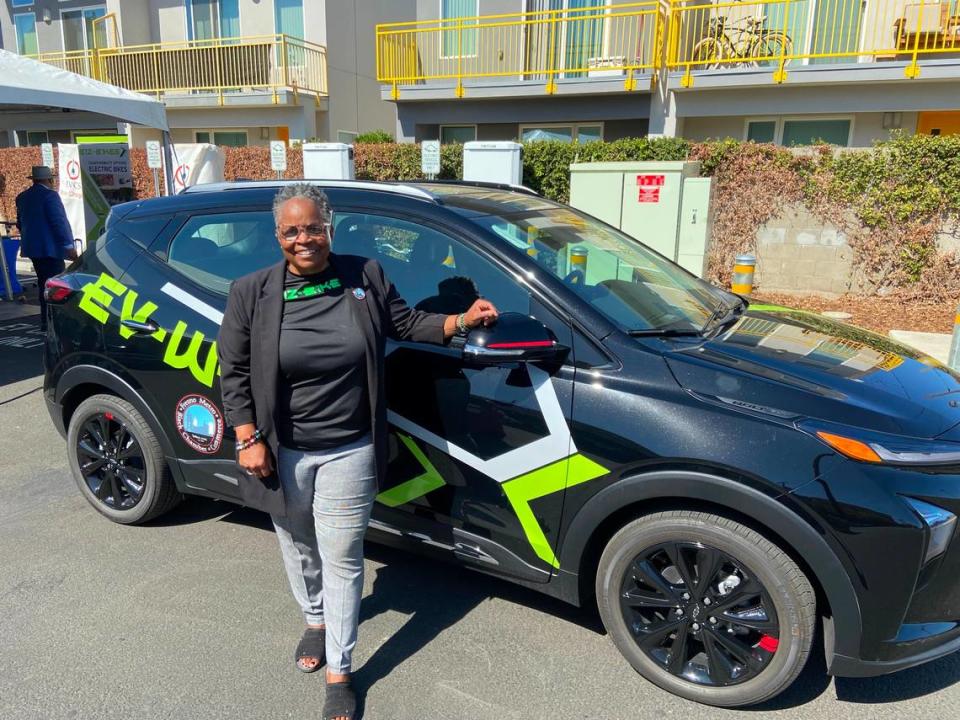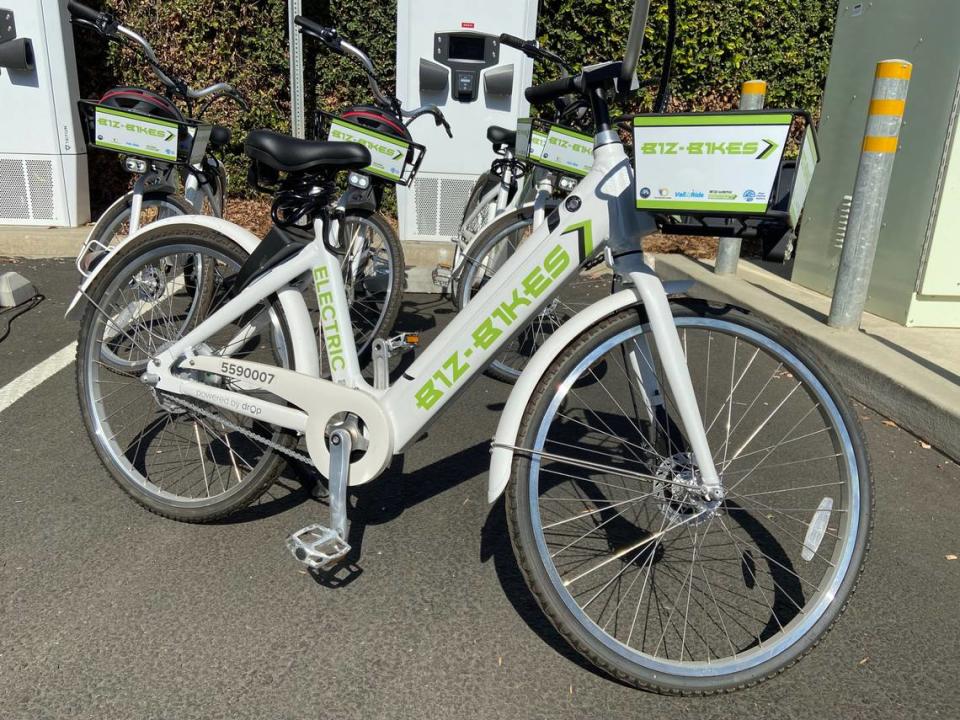Fresno’s most polluted neighborhoods get a lift from electric car, e-bike sharing | Opinion
- Oops!Something went wrong.Please try again later.
Fresno’s introduction to the brave new world of shared electric vehicles was poorly executed and even more poorly received.
In 2018, an international company dropped off 500 electric scooters near Fresno State and Fresno City College without bothering with permits or licenses. The city responded with a cease-and-desist letter, and scooter companies have steered clear ever since.
Five years later Fresno is getting a second try. Only this time the circumstances and reception couldn’t be more different.
At a well-attended “launch event” in downtown Fresno hosted by the Fresno Black Metro Chamber of Commerce, Mayor Jerry Dyer and officials from major state agencies lauded the arrival of a government-funded program that will provide low-cost electric car and bike sharing, as well as vanpool service, to residents of some of the city’s poorest, most polluted neighborhoods.
When fully operational, the Clean Shared Mobility Network will have 40 cars (2023 Chevy Bolts) and 200 e-bikes dispersed around six “mobility hubs” where charging stations have been installed. Five of the six hubs are located at Fresno Housing Authority developments.
Opinion
Several years ago, Fresno (specifically southwest Fresno and much of downtown) was selected by the Strategic Growth Council to receive $66.5 million in state funding from their new program funded by California’s cap-and-trade marketplace. Transformative Climate Communities was created to fund coordinated neighborhood-level programs designed to reduce greenhouse gas emissions and provide economic, environmental and health benefits.
After Fresno was awarded the $66.5 million — 50% of the money available in TCC’s first year — 25 projects were selected by a local steering committee following months of community engagement. One of the biggest asks from residents was for low-cost reliable transportation options that compliment public transit. The FBMCC signed on as lead agency and has since partnered with six other firms to operate and manage the services.
Like most government-funded programs, the Clean Shared Mobility Network had a slow, deliberate rollout. The original launch was scheduled in the spring of 2022.
Just the idea of purchasing 40 electric cars and 200 e-bikes and leaving them on the streets of Fresno seems fraught with problems. Some are going to be stolen, damaged and vandalized, FBMCC CEO Cassandra Little acknowledged.
“But we try to put systems in place to keep that stuff to a minimum,” added Eric Spikes, director of the FBMCC’s Biz-Werkx Innovation and Mobility Hub.

‘Building a sense of community’
The program’s success, according to Spikes, will hinge on its careful, specific introduction. In order to check out a car or bike, residents must attend an orientation session to learn how to operate them and have their bank accounts linked to a smart phone app.
“It’s also a matter of building a sense of community around it,” Spikes said. “These cars and bikes aren’t just here and ‘Whatever.’ It’s, ‘These are yours. This is a resource for you.’
“When the sense of ownership goes up, that’s when vandalism goes down. That’s not just a car that someone smashed the window of, that’s our car. Right?”
Aside from hypothetical vandalism, actual pervasive vandalism to EV charging infrastructure could also cripple the program. Fewer than 10 of the 42 TCC-funded charging stations around southwest and downtown Fresno are currently operational, according to councilmember Miguel Arias. In addition, about 40% of the rest have been targeted and stripped by copper wire thieves, said City Manager Georgeanne White.
“We’re the only city, apparently, that constantly deals with vandalism of charging stations,” Arias added.
One solution is to install cages around each charging station, and locking them between 10 p.m. and 6 a.m. That strategy has proven successful at a lot near City Hall and is certainly more cost effective.
According to Arias, the city spends between $1,500 and $2,500 to repair each Level 2 charging station and $5,000 to repair Level 3s.
How much does it cost to install a cage?
“Two hundred bucks,” Arias said.
Active transportation in southwest Fresno
During Dyer’s speech at Friday’s launch event, the mayor recalled his recent trip to Munster, Germany, where the first thing he noticed after leaving the airport was “bicycles everywhere.”
“I’m not talking hundreds, I’m talking thousands and tens of thousands,” Dyer said before revealing that 47% of Munster residents ride bikes within the city limits compared to 1.2% in Fresno.
“We have a long way to go,” he added.
No doubt about that. In addition to the e-bike share, TCC also funded three additional projects that are making it safer for southwest Fresno residents to ride bikes and walk.
Besides sidewalk and bike lane installations and a planned new bike trail along the Fanning Ditch, there’s also the Measure C-funded reconstruction of California Avenue/Ventura Street (scheduled to begin in early 2024) and the openings of the Ventura and Tulare Street underpasses for high-speed rail (also next year). The combined effect should be massive.
“Once those projects happen, that’s when you’re going to see the full connectivity,” Arias predicted.
No sense in waiting any longer to fire up Fresno’s second attempt at shared EVs.
Things are already off to a more auspicious start than the first one.


